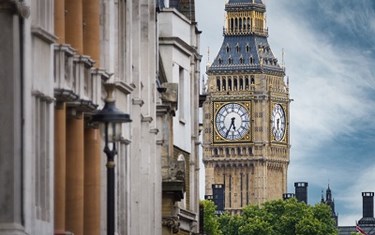
Sam Spencer is the RTPI’s Policy and Data Analyst
Delivering strong public services, driving economic growth, leading the transition to net zero, and supporting people and businesses were the major themes of the Autumn Budget and Spending Review 2021. This blog highlights the main announcements affecting the planning system and briefly assesses their implications.
The planning system
Resourcing
The newly named Department for Levelling Up, Housing and Communities (DLUHC) was granted a £2.6bn budget increase over the Parliament to £8.9bn in 2024-25 as part of the Spending Review.
A three-year settlement worth £4.8bn for local authorities is desperately needed and the RTPI hopes that some of this money can be used to reverse the backslide in expenditure on planning, which has fallen by around 29% since 2009-10 in England.
We look forward to working closely with the government on the forthcoming planning reforms and will continue to make the case for long-term investment in the planning system. This is key to delivering a proactive plan-led system that supports communities to address housing supply with the necessary infrastructure, climate change, nature recovery, active travel, public transport and economic well-being for everyone.
Digital
We had called for a Digital Transformation Fund of £46m to build skills and capacity. The £65m announced will support delivery of the RTPI and Connected Places shared vision. This is positive and in addition to the pilots announced recently has the potential to radically improve the user experience of the planning system. This outlined an agenda to harness the power of technology and direct innovative thinking towards improving the planning system so that our members can work more efficiently, effectively and collaboratively under conditions of complexity and rapid change. However, digital is only one part of the solution and broader long term investment will be needed to deliver quality placemaking.
Housing
Brownfield land
We are pleased that the government is considering how best to alleviate the housing crisis. The £1.8bn package to regenerate brownfield land announced is encouraging and we favour a brownfield-first approach, although overcoming the delivery challenges such as remediation of land will require focus to successfully deliver the 160,000 homes. We also welcome the restating of the Affordable Homes Programme and its commitment to deliver 180,000 homes at a 20% discount. It is unclear whether they will be built where they are needed most, but it is important that the homes are supported by adequate infrastructure and facilities as well as delivering on net zero commitments. On building safety, a 4% Residential Property Developer Tax will be levied on property developers with profits over £25m to help create a £5bn fund to remove unsafe cladding.
Levelling Up
The first round of successful bids to the centrally administered Levelling Up Fund were announced with £1.7bn awarded. The spreadsheet of those receiving funding includes places across the United Kingdom. Further bidding rounds will be held and the results announced in the future, in due course taking the total amount to £4.8bn. The Government explains that this “contributes to the levelling up agenda by investing in infrastructure that improves everyday life across the UK, including regenerating town centre and high streets, upgrading local transport, and investing in cultural and heritage assets”.
If you like a map (and I suspect you do), the document illustrates the locations of investment here. We are keen to see details about the Government's proposals for larger than local planning in the Levelling Up White Paper due to be published later this year (a reminder that we are proposing Green Growth Boards).
Transport
We saw a focus on developing London-style transport networks in other city regions with £5.7bn announced for local transport links in English city regions designed to encourage and enable higher levels of active travel and usage of bus, metro and rail.
RTPI research on Net Zero Transport explored how places can deliver the necessary rapid reductions in greenhouse gas emissions from surface transport, where very little progress has been made over the last 30 years. The success of these investments will depend on how well they can be coordinated to engage across boundaries and ensure that the benefits reach out to all communities, not just the city regions as we discuss within the RTPI Great North Plan. Strategic planning is essential to ensure that these investments contribute to sustainable growth. Not forgetting Freeports with the first tax sites to be located in Humber, Teesside and Thames able to begin initial operations from November (a reminder that our views on Freeports are here).
Climate
The 50% cut in the Air Passenger Duty on flights within the United Kingdom appears out of sync with other spending commitments, especially the three year £5.7bn investment in rail to “to help the railways become more customer focused and financially sustainable.” The wording of the Government’s Net Zero Strategy makes this even more of a surprise in stating “We will build extra capacity on our rail network to meet growing passenger and freight demand and support significant shifts from road and air to rail”.
The RTPI aims to use COP26 as an opportunity to increase understanding of the role planners and planning can play in tackling climate change, do check out our COP26 Hub for more details on our activities in Glasgow.


